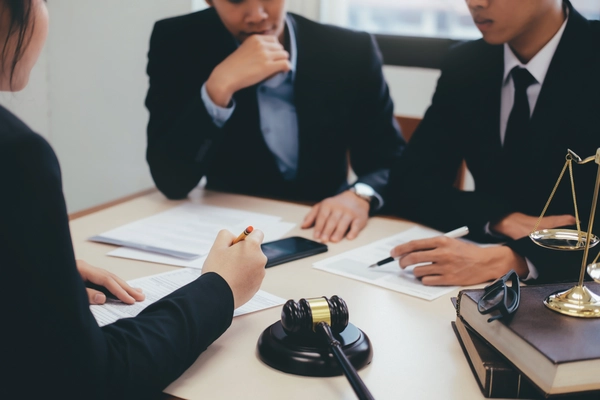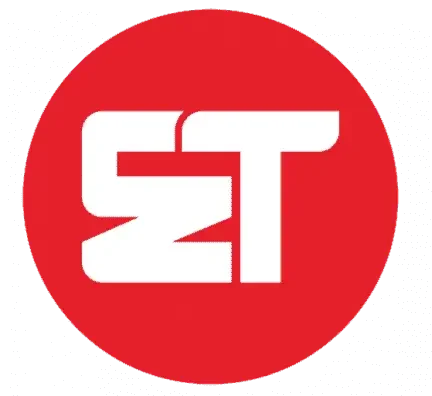In the Republic of Indonesia, the circulation and commercialization of products that may affect public health such as processed food, cosmetics, traditional medicines, health supplements, and over-the-counter (OTC) drugs are subject to stringent regulatory control by the National Agency of Drug and Food Control (Badan Pengawas Obat dan Makanan – BPOM). In accordance with prevailing laws and implementing regulations, any domestic or foreign entity intending to market such products within the Indonesian jurisdiction must first obtain a formal approval known as the Nomor Izin Edar (NIE), or Marketing Authorization Number.
The NIE functions as a legally binding certification granted by BPOM after a thorough evaluation of the product’s safety, efficacy, and quality. Without a valid NIE, the product is considered unauthorized for distribution, and its circulation may trigger administrative sanctions, product recall, or even criminal liability under Indonesian law. The requirement applies to all business actors, including manufacturers, importers, and distributors, and reflects Indonesia’s commitment to ensuring consumer protection and public health security.
Through this legal article, ET Consultant aims to provide a detailed and practical understanding of NIE, its regulatory foundation, legal purpose, duration of validity, and procedures for verifying its authenticity. This overview is especially relevant for foreign principals, local agents, importers, and brand owners who wish to lawfully market and distribute their regulated products in Indonesia.
As a licensed consultancy experienced in regulatory affairs and product registration, ET Consultant stands ready to assist businesses in navigating the complex compliance landscape surrounding product approval in Indonesia.

Read More: BPOM Adalah
What Is NIE?
Nomor Izin Edar (NIE), or Marketing Authorization Number, is an official distribution license issued by the Indonesian Food and Drug Authority (BPOM) to certify that a product has passed a comprehensive regulatory assessment and is legally permitted to be circulated in the Indonesian market. The issuance of an NIE serves as the Indonesian government’s formal confirmation that the product in question has complied with all applicable requirements concerning safety, efficacy, quality, labeling, and manufacturing standards, as stipulated under relevant BPOM regulations and sectoral laws.
An NIE is mandatory for all business entities intending to market the following categories of regulated products:
- Processed food and beverages (including packaged snacks, drinks, and instant food)
- Cosmetic products (e.g., skincare, makeup, toiletries, fragrances)
- Traditional medicine (Obat Tradisional, such as jamu and herbal remedies)
- Health supplements (vitamins, minerals, probiotics, and other nutraceuticals)
- Over-the-counter (OTC) pharmaceuticals (Obat Bebas and Obat Bebas Terbatas)
- Quasi-drugs and household health supplies (e.g., antiseptics, disinfectants, insect repellents)
The primary legal functions of the NIE include:
- Regulatory Validation
It demonstrates that the product has been reviewed and deemed to comply with national standards related to health, hygiene, and safety. - Market Authorization
It grants the product the legal status required for importation, distribution, and sale throughout the Indonesian territory. - Traceability and Consumer Protection
Each NIE is uniquely assigned and traceable through BPOM’s digital database, which enables enforcement officials and the general public to verify a product’s legitimacy, thereby reducing the risk of counterfeit or substandard goods entering the market. - Accountability Mechanism
It ensures that the manufacturer or importer remains accountable for any post-market safety issues, labeling discrepancies, or product recalls.
In the absence of a valid NIE, the product shall be considered illegal, and its production, importation, or distribution may lead to serious consequences, including confiscation, administrative penalties, revocation of business licenses, and even criminal prosecution, depending on the severity of the violation.
Given the critical legal and commercial implications of the NIE, it is imperative for businesses, especially foreign brand owners and Indonesian distributors, to ensure that each product has been properly registered under the correct classification and complies with the corresponding technical documentation requirements.
Validity Period of NIE Based on Product Category
The validity period of a Nomor Izin Edar (NIE) is determined by the product’s classification and the prevailing regulatory framework issued by BPOM. Each category of regulated products is subject to a distinct set of technical guidelines that outline the duration of the license, conditions for renewal, and documentation requirements to maintain compliance. Below is a breakdown of the NIE validity period based on product type, especially for Processed Food & Beverages and Cosmetic products, along with the applicable regulations:
Processed Food and Beverages
- Validity Period: 5 (five) years
- Governing Regulation: BPOM Regulation No. 23 of 2023 on Registration of Processed Food. As stipulated under Article 53 of BPOM Regulation No. 23 of 2023, the Marketing Authorization (NIE) for processed food products is valid for five (5) years from the date of issuance and is subject to renewal.
- Renewal Requirements: Businesses must submit a renewal application no later than 6 (six) months prior to the expiration date of the existing NIE. The application must include:
- Updated product composition and specifications
- Revised labeling and packaging in accordance with current regulations
- Evidence of continued compliance with Good Manufacturing Practices
- Other supporting documentation as may be required by BPOM’s online system (e-Registration)
Cosmetic Products
- Validity Period: 3 (three) years
- Governing Regulation: BPOM Regulation No. 21 of 2022 on Cosmetic Production and Distribution. The regulation confirms that cosmetic notifications (NIE equivalent for cosmetics) are valid for 3 years, in accordance with the ASEAN Cosmetic Directive framework implemented in Indonesia.
- Renewal Requirements: Extension may be requested by submitting an updated notification form (CPN form), revised label content, and payment of applicable administrative fees through the BPOM Online Notification System (ONS).
General Compliance Note:
It is important to note that all renewals must be submitted through BPOM’s official electronic registration platforms, such as e-Registration (e-REG) for food and drugs, or the Notification System for cosmetics. Failure to renew the NIE before its expiry date will result in the product being delisted and legally prohibited from further distribution in the Indonesian market.

Read More: Understanding the Benefits of Contract Manufacturing for Cosmetics with BPOM Licensing in Indonesia
Ensuring the Validity and Legitimacy of NIE
In the Indonesian regulatory landscape, holding a valid and legitimate Nomor Izin Edar (NIE) is not only a formal requirement but a critical compliance obligation for all entities involved in the manufacturing, importation, distribution, and sale of regulated products. Businesses and distributors must proactively validate the authenticity of every NIE associated with their product portfolio to avoid legal exposure, reputational damage, and market withdrawal.
The following actions are essential to ensure continuous compliance and safeguard against regulatory breaches:
- Verify Through BPOM’s Official Database
Businesses must routinely consult BPOM’s official online portal to confirm the registration status of their products:- Website: https://cekbpom.pom.go.id
- On this platform, users can search for the product’s NIE number, product name, brand, manufacturer, and expiration date.
- Ensure that all listed details match exactly with the information printed on the product’s label and packaging. Discrepancies may indicate an expired, forged, or unregistered product.
This digital verification serves as a public transparency tool and allows importers, distributors, and retailers to confirm the regulatory standing of the products they handle.
- Examine Product Packaging and Labeling Compliance
- The NIE number must be visibly and legibly printed on the product’s outer packaging, typically near the barcode, batch number, or ingredient list.
- Cross-check the label content to ensure that it reflects the approved composition, claims, usage instructions, and manufacturer/importer details as submitted to BPOM.
- Labels must be presented in Bahasa Indonesia and comply with BPOM’s technical labeling regulations specific to each product category (e.g., food, cosmetics, health supplements).
Failure to comply with labeling standards—even if the NIE is valid—may still result in administrative warnings or sanctions from BPOM.
- Monitor Shelf Life in Relation to NIE Validity
It is essential to distinguish between product shelf life and NIE validity. The product must only be distributed or sold if:- The physical product is within its designated shelf life, and
- The associated NIE is still active and unexpired.
- A product may still appear usable or safe to consume, but if the NIE has expired, it is legally prohibited from distribution and considered non-compliant under Indonesian law.
Businesses must implement inventory tracking systems to alert them in advance of NIE expiration to prevent unintentional violations.
- Avoid Circulating Products with Expired or Falsified NIEs
The distribution of products bearing fraudulent, manipulated, or expired NIEs is a serious regulatory offense. Legal consequences may include:- Administrative Sanctions
- Criminal Liability
- Reputational Damage
All supply chain stakeholders—including brand owners, importers, distributors, and retailers—share the responsibility to prevent the circulation of non-compliant products.
- Keep Internal Compliance Records Up to Date
As part of internal control measures, businesses should: - Maintain digital and physical copies of valid NIE certificates for all products.
- Assign a Regulatory Affairs Officer or Compliance Manager to oversee periodic checks.
- Record all changes to product formulation, packaging, manufacturer identity, or importer details and report them promptly to BPOM to update the existing NIE.

Conclusion
Obtaining and maintaining a valid Nomor Izin Edar (NIE) from BPOM is a critical legal requirement for any business seeking to import, manufacture, or distribute regulated products in Indonesia. Whether your product falls under the category of processed food, cosmetics, health supplements, traditional medicines, or over-the-counter pharmaceuticals, compliance with BPOM’s licensing framework is non-negotiable.
The NIE serves not only as a regulatory endorsement but as a safeguard for market legitimacy, public health protection, and supply chain accountability. Non-compliance, whether through expired registrations, improper labeling, or false documentation, can lead to administrative sanctions, financial penalties, and criminal liability.
As regulatory expectations evolve, businesses must adopt a proactive and well-documented approach to product registration, NIE validation, and renewal management.
At ET Consultant, we provide end-to-end regulatory support, helping clients prepare, submit, renew, and monitor their BPOM NIEs with full legal compliance. Our experienced team ensures that your products meet Indonesia’s ever-changing health and safety standards, reducing delays, avoiding rejections, and protecting your reputation in the marketplace.
Contact ET Consultant today to schedule a consultation and ensure your products are ready for lawful distribution under BPOM supervision.
***
ET Consultant is a Business Consultant and Legal Consultant Expert that provides support for local and multinational clients to start and manage their business operations in Indonesia. ET Consultant specializes in Business Incorporation, Licensing & Legal, Accounting & Taxes, Immigration, and Advisory Services.
Ready to find out more?
Excellent and Trusted Consultant (ET Consultant)
PPHUI Building Lantai 2 suite 210 Jl. H.R. Rasuna Said Kav. C-22 Kuningan
Jakarta Selatan, 12940 Indonesia.
Tlp : 021 5290 7039
Email : [email protected]


